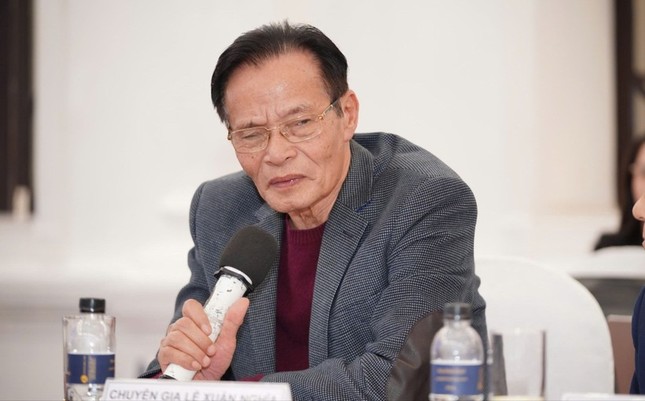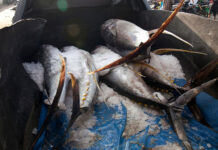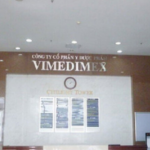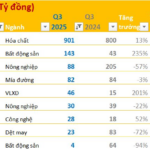Shortcomings in the Inspection and Supervision of Banks
At the workshop “Building a Sustainable Financial Group in Vietnam” organized by Viettimes newspaper on the morning of December 5, Mr. Le Xuan Nghia emphasized that transparency is one of the most important requirements of the new Law on Credit Institutions.
According to the Law on Credit Institutions 2024, which came into effect on July 1, a single individual shareholder cannot own more than 5% of the chartered capital of a credit institution. A corporate shareholder cannot own more than 10% of the chartered capital. Shareholders and related parties of the shareholder must not own more than 15% of the chartered capital.

Mr. Le Xuan Nghia – Member of the Advisory Council for Monetary and Financial Policy
Mr. Nghia assessed that this is the best law to date. However, he believes that some banks still exceed the prescribed safe capital ratios. Therefore, Mr. Nghia suggested that instead of a long roadmap for these banks to comply, they should be required to adhere to the new regulations within six months to a year.
Expressing concern about banks potentially finding ways to circumvent the rules, Mr. Nghia cited the example of bond issuances during the inspection period by the State Bank of Vietnam. He asserted that without genuine administrative and legal reforms, such situations would be challenging to change.
“There are still many shortcomings in the supervision and inspection of commercial banking activities. For example, SCB Bank has existed for many years in an opaque state without any handling,” said Mr. Nghia.
Saying One Thing but Doing Another?
Citing international experiences in managing banks, Dr. Nguyen Tri Hieu shared that the United States also has controls over ownership ratios in banks. However, the ratio for legal entities is lower than that for individuals because US authorities believe that legal entities can more easily manipulate banks than individuals.
In Vietnam, the ownership ratio for individuals is lower than that for legal entities. This stems from the “peculiarity” of Vietnamese business culture, where individuals hold considerable power within enterprises.

SCB Bank operated for years without transparency and faced no consequences.
Mr. Hieu also mentioned that in Vietnam, the situation of saying one thing but doing another has led to a lack of control over the actual ownership of an individual or economic organization in a bank.
Regarding the role of the regulator, shareholders might try to circumvent ownership regulations by asking others to hold shares on their behalf. However, this is usually not hidden from the authorities. If there is a strong commitment to enforcement, it can be done, and it is not difficult to investigate who is related to whom within a bank,” said Mr. Hieu.
Lawyer Truong Thanh Duc, Executive Director of ANVI Law Firm, opined that there is a discrepancy between the paperwork and the reality of shareholder ownership in banks. He asserted that if a shareholder owns 100%, 70%, or even 50%, they will manage according to that percentage.
According to Mr. Duc, while a mandatory reduction in the ownership ratio should be stipulated, the current lack of clarity and the six-month timeline are merely cosmetic changes to comply with formal legal requirements. He even mentioned situations where a subsidiary owns more than 50% of a bank’s shares. In such cases, how do we manage, supervise, and monitor the bank’s activities and decision-making processes?
“In my opinion, a person who officially owns 20-25% of a bank’s shares cannot do much. To address this issue effectively, one needs to hold at least 35% or 49% of the shares,” Mr. Duc stated.
Unveiling the Counterfeit: Over 50,000 Fake Red Bull Cans Uncovered
The Market Management Force has seized over 50,000 cans of a beverage named “Bò Húc”, which blatantly infringes upon the well-known Red Bull trademark. This counterfeit product was uncovered in a recent market inspection, shedding light on the rampant issue of trademark violations and the importance of vigilant market regulation.
The Great North Ninh Craft Village Crackdown
The Bac Ninh People’s Committee has taken decisive action against environmental violations in the Man Xa traditional craft village industrial cluster. To date, they have imposed fines on 25 out of 64 facilities, totaling nearly VND 14.6 billion.









































